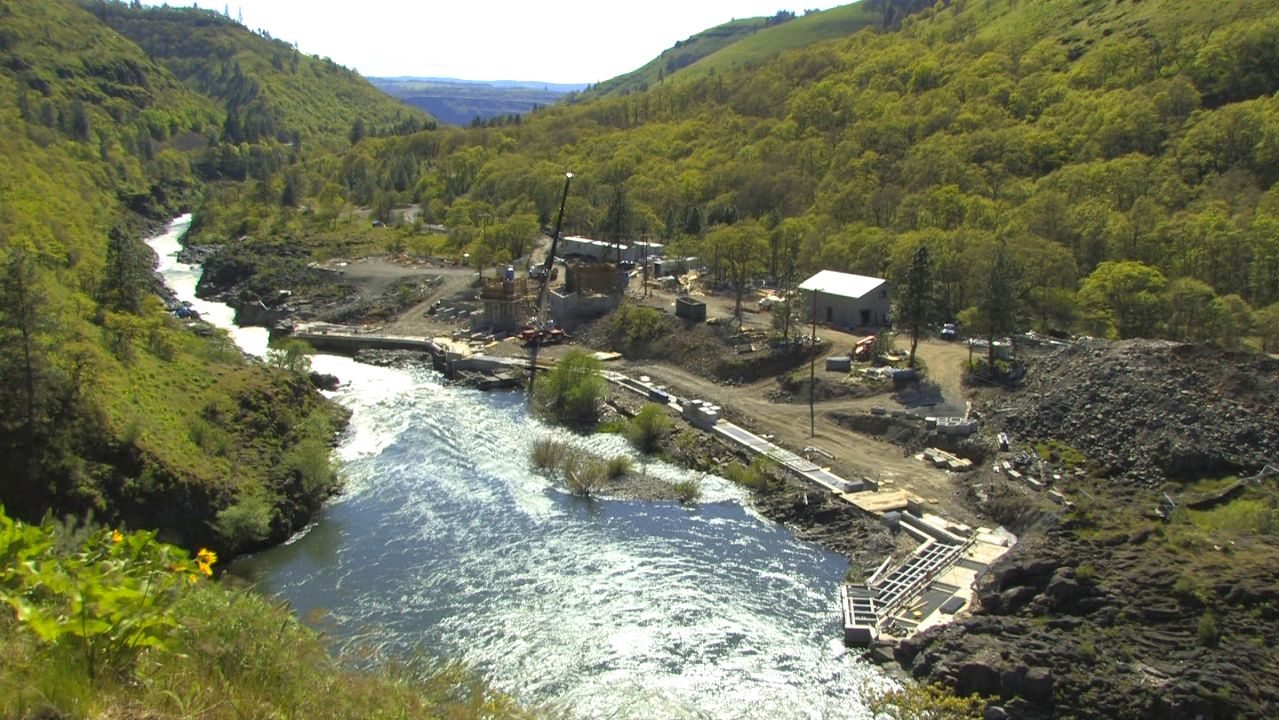A $12.5 million fishway project in Klickitat County marks the latest Bonneville Power Administration-backed effort to restore fish runs in the Columbia River Basin.
The Lyle Falls Fishway Passage Project isn’t the most ambitious ever pursued. But it represents one result of the Columbia Basin Fish Accords, a 2008 agreement that joined several Northwest native tribes with federal agencies to commit effort and money to salmon recovery in the region.
“I think it’s one piece of a large puzzle,” said David Wilson, a spokesman for the BPA in Portland.
As part of the agreement, the BPA committed more than $900 million in 10 years for various fish and habitat projects in the Northwest. The federal power marketing agency paid close to $12.5 million — in ratepayer money — to back the Lyle Falls project, Wilson said.
The work has broader implications than just Klickitat County, Wilson said. Interconnected projects under the fish accords reach from the mouth of the Columbia River to its upper basin, he said.
“It’s more salmon for the region, not just the Klickitat River,” Wilson said. He considers the resulting benefits to be more than the tangible.
“Salmon are iconic,” Wilson said. “Salmon are a part of the Northwest. Salmon are dear to everyone’s heart who lives here in the Northwest.”
The project is located on the Klickitat River about two miles from its confluence with the Columbia River. It’s expected to be finished by the end of September. Lyle Falls’ project leader, the Confederated Tribes and Bands of the Yakama Nation, isn’t waiting to tout its significance.
“One of the real important reasons that we do work in the Klickitat,” said Bill Sharp, a research scientist with the Yakama Nation, “is it is the last best place for tribal fisherman to catch using traditional methods.”
The Lyle Falls fishway makes a “major modification” to an outdated fish ladder built in the 1940s, Sharp said. The new facility extends that system, and moves the exit to meet federal passage criteria for fish making their way up the Columbia River tributary, he said. An off-channel trap also allows biologists to better study the fish coming through, Sharp added.
The Yakama Nation has long focused its fish and habitat restoration work on the Klickitat River, one of the longest free-flowing rivers in Washington, Sharp said. The Yakama tribes also operate the Klickitat fish hatchery farther upstream from Lyle Falls. Sharp said tribes hope to better integrate wild fish into that operation.
The Yakama Nation has often worked with the state Department of Fish and Wildlife and other agencies on habitat work. Those collaborations only strengthen agreements like the 2008 fish accords, Sharp said.
“At the field level you develop a great rapport, and that translates up through policy,” Sharp said.
Wilson agreed. He called the BPA’s work with the Yakama Nation and other tribes a “valuable partnership.”
The Yakama tribes plan to hold a celebration and ribbon-cutting ceremony at Lyle Falls when the new facility is complete next month. Construction began last year, but planning on the project started in 2006.
“It’s a really complex, intricate facility,” Sharp said.
Eric Florip: 360-735-4541 or eric.florip@columbian.com.




